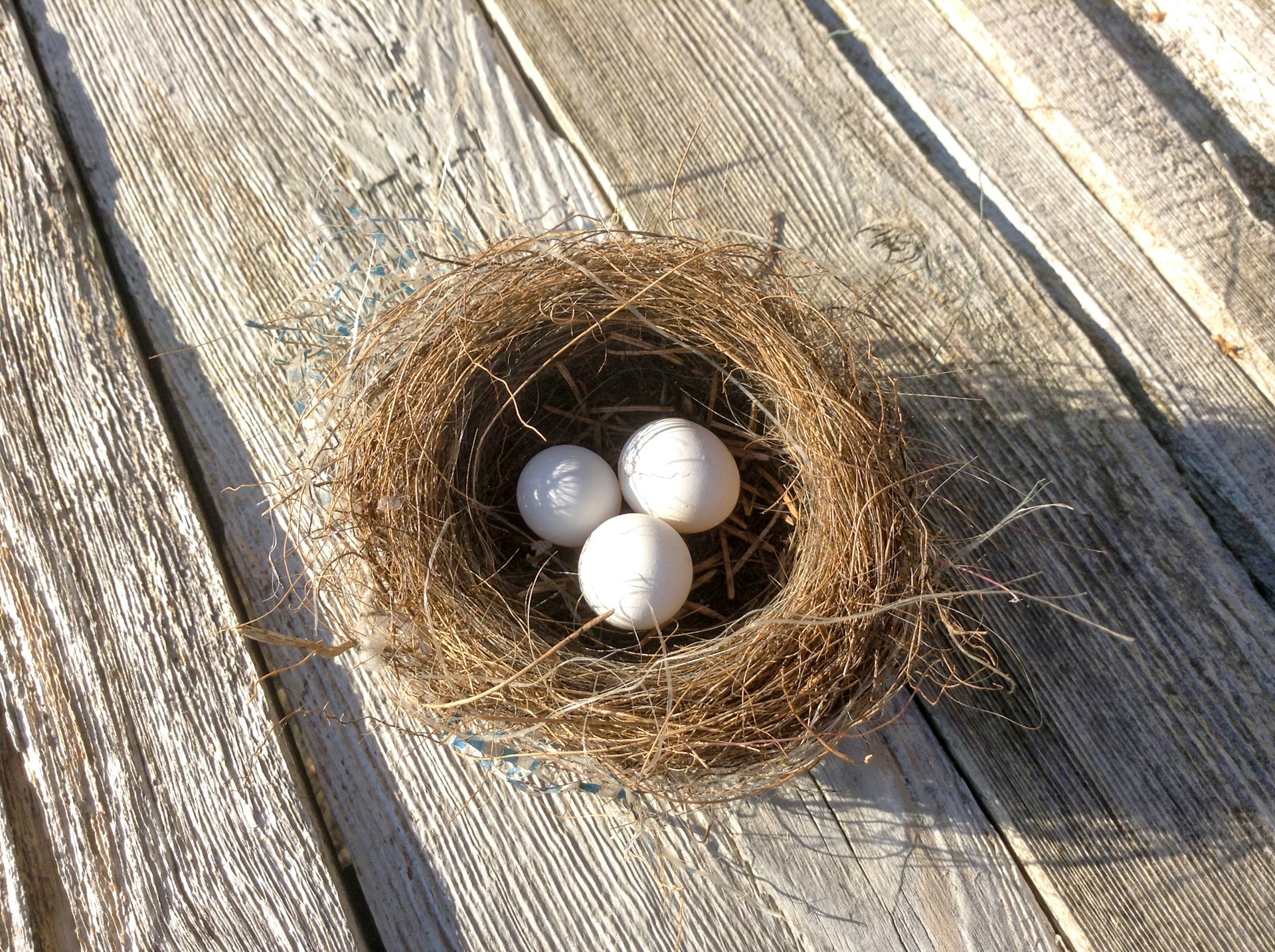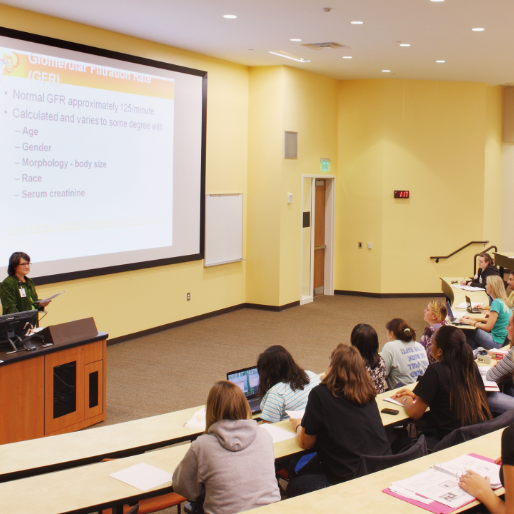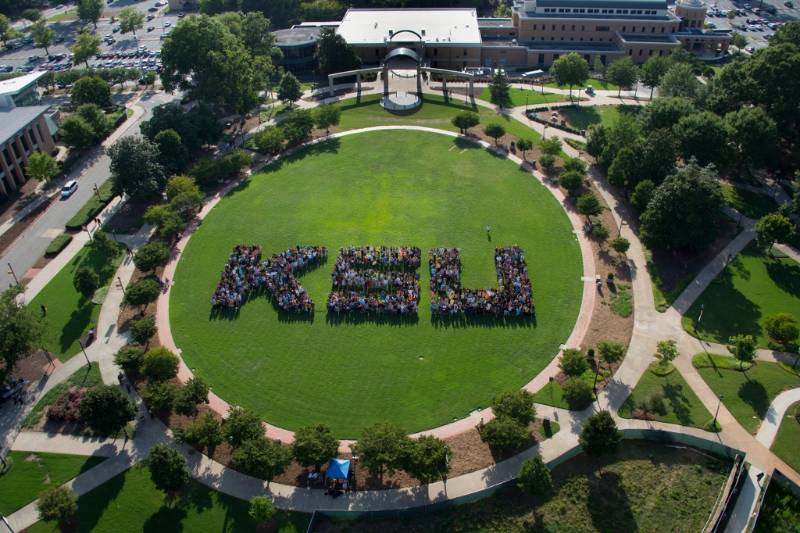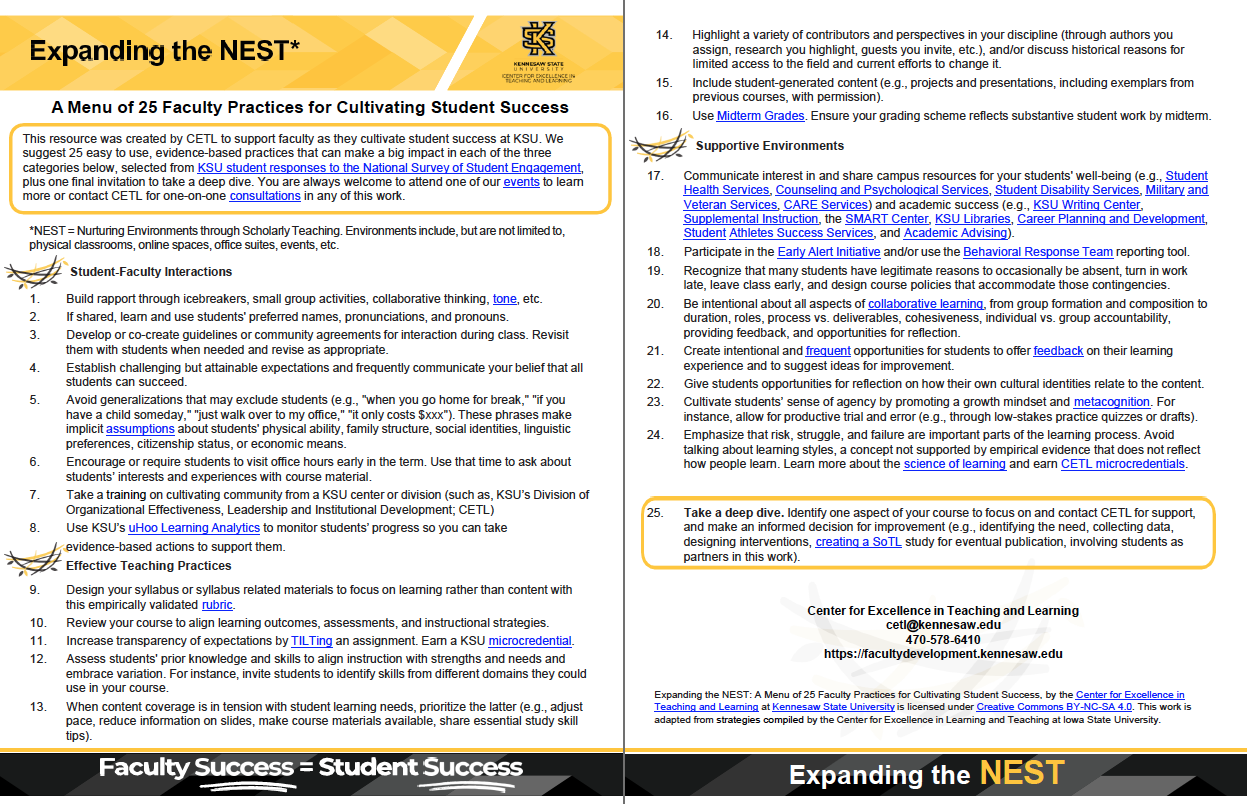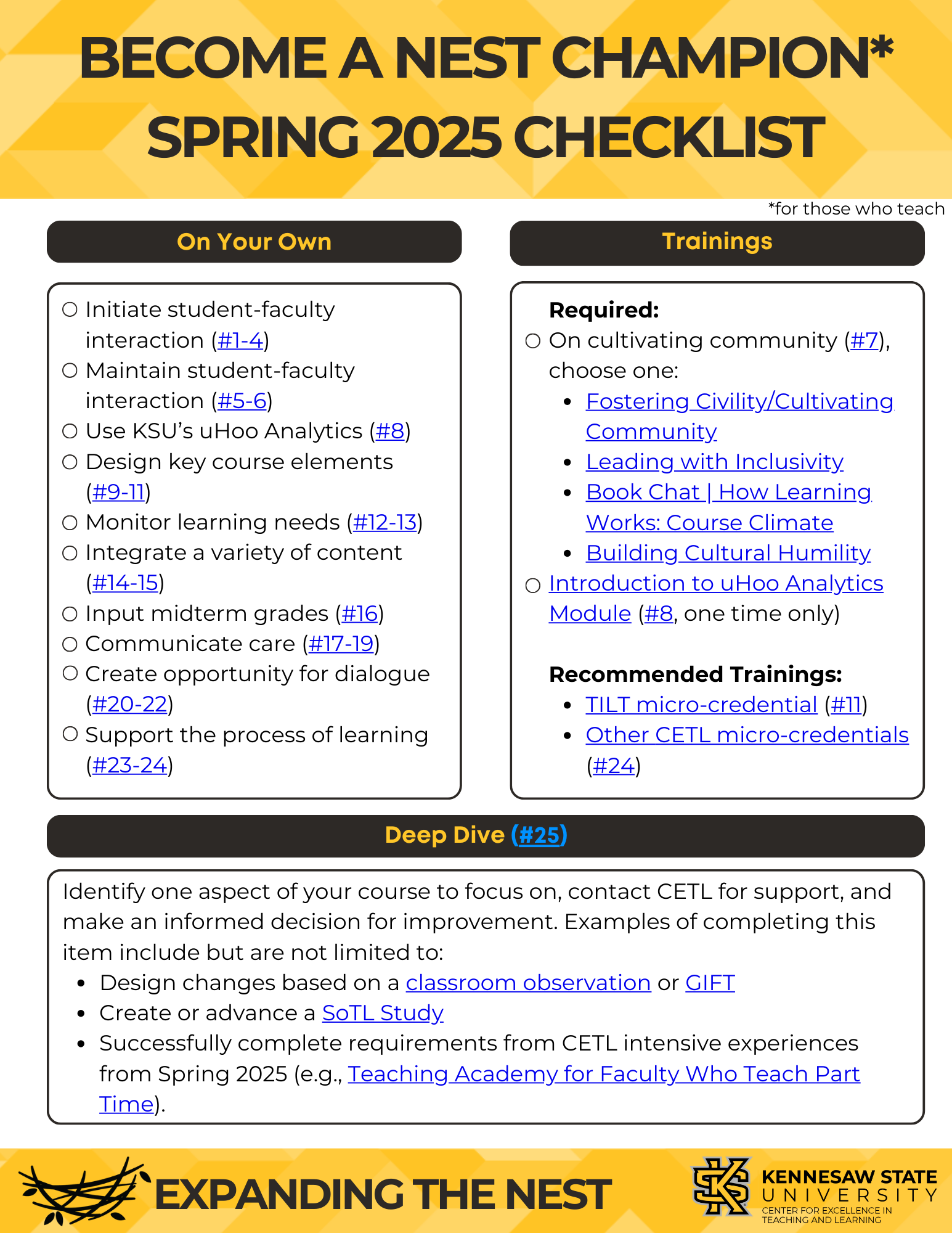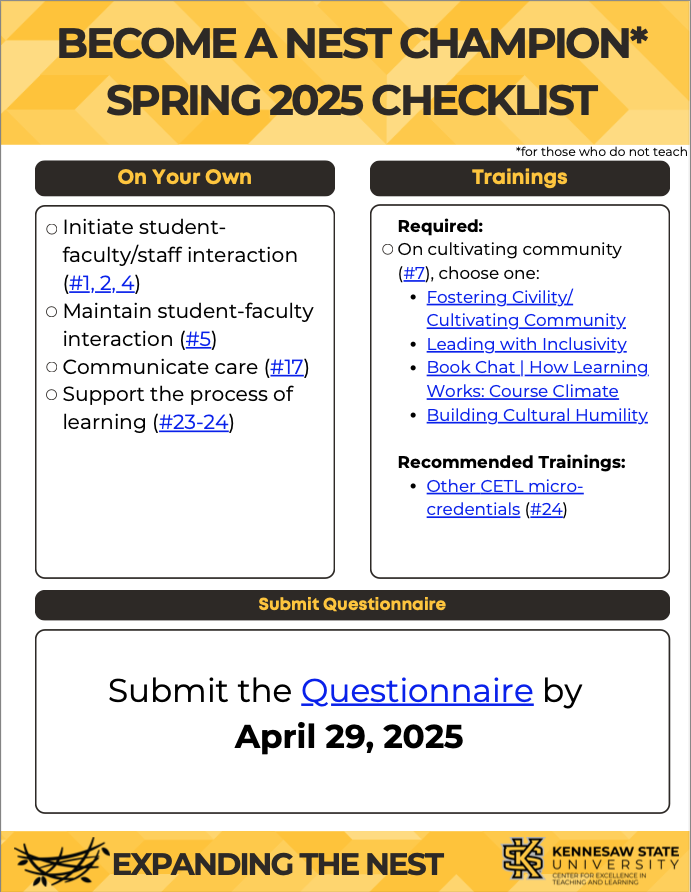Expanding the NEST
Expanding the NEST is an initiative designed and supported by the CETL team for all Kennesaw State University Educators. NEST stands for Nurturing Environments through Scholarly Teaching. Environments include, but are not limited to, physical classrooms, online spaces, office suites, and events.
More information on engagement indicators can be found on the NSSE website.
The resource document offered here was created by CETL to support faculty as they cultivate student success at KSU. We developed this resource to connect with data from KSU Student Responses to the National Survey of Student Engagement (NSSE). With this data, CETL identified practices to support in the three highlighted areas extracted from our NSSE report: Student-Faculty Interaction, Effective Teaching Practices, and Supportive Environments.
Using the Resource
CETL acknowledges this is not an all-inclusive list. The suggested practices are intended as a menu, and we do not expect faculty to implement all 25 practices. On the other hand, many of us already use some of these practices. This document may serve to validate beneficial practices around cultivating student success that you are already using, while also offering new suggestions. You can further explore inclusive teaching through conversations with colleagues, consultations with CETL, or relevant teaching and learning scholarship.
You are welcome to print this resource out, but it is most beneficial in the electronic format to access the links embedded throughout.
Micro-Credential
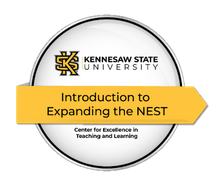 The 'Introduction to Expanding the NEST' souvenir provides educational development
for Kennesaw State University educators and staff who regularly work with students
regarding the Expanding the NEST initiative. The learning materials identify a menu
of easy-to-use practices that increase student success, focusing on three areas: student-faculty
interaction, effective teaching practices, and supportive environments.
The 'Introduction to Expanding the NEST' souvenir provides educational development
for Kennesaw State University educators and staff who regularly work with students
regarding the Expanding the NEST initiative. The learning materials identify a menu
of easy-to-use practices that increase student success, focusing on three areas: student-faculty
interaction, effective teaching practices, and supportive environments.
Please review carefully the earning criteria on the KSU Badgr website.
Get Started Here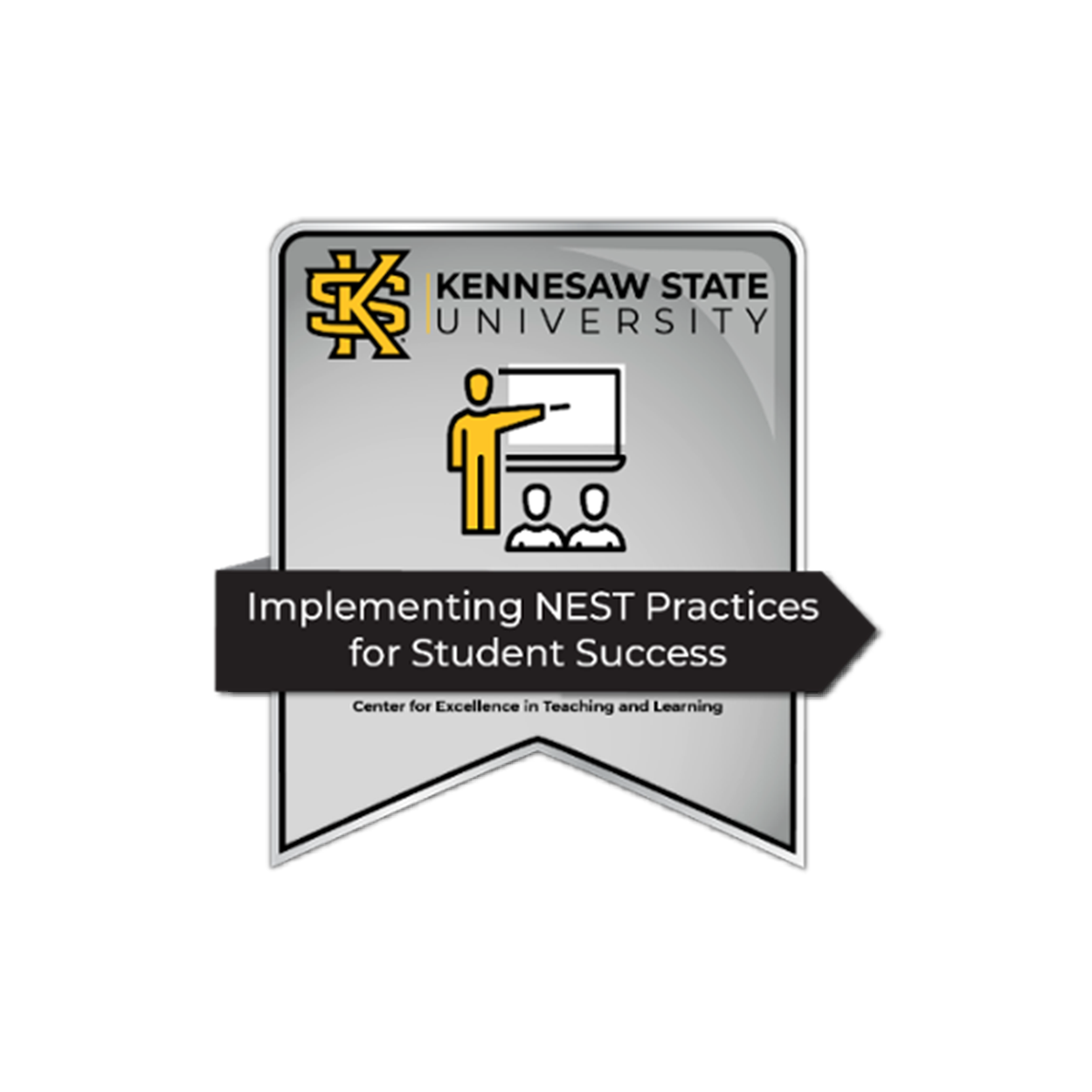
The 'Implementing NEST Practices for Student Success' micro-credential confirms faculty and staff who teach have examined in depth “Expanding the NEST” practices that cultivate student success. The core principles of student success depend on the quality and meaningfulness of student-faculty interaction, effective teaching practices, and supportive environments.
Please review carefully the earning criteria on the KSU Badgr website.
Recognition
Click the button below to complete the Expanding the Nest questionnaire. Please include the practices you engaged in for the Spring 2025 semester. More information on eligibility and helpful checklists can be found below.
NOTE: Optional fields (e.g. ARD, FPA fields), which appear for full-time faculty, are not required.
Access the "Expanding the NEST" QuestionnaireCETL recognizes and celebrates faculty and staff at KSU who have made significant efforts to engage in evidence-based practices known to promote student success.
Each semester, we will recognize three categories of KSU educators and non-teaching staff who have demonstrated strong commitments to cultivating student success: Champions, Innovators, and Advocates. We will celebrate this recognition at our annual Celebration of Teaching Day event (occurs at the end of every fall semester).
To be eligible for each category, KSU educators and staff must identify the number of Expanding the NEST practices they have engaged in during the semester.
-
EligibilityFaculty/Educators*Non-Teaching Staff
-
Champion25 NEST Practices8 NEST Practices
-
Innovator15 NEST Practices5 NEST Practices
-
Advocates6 NEST Practices3 NEST Practices
*At least one practice engaged by KSU educators must include an institutional initiative. These initiatives are reflected in practices #7, 8, 16, 17, and 18.
If you would like to be recognized as NEST Champion, Innovator, or Advocate, the submission period for recognition for the spring semester is open March 21, 2025 - April 29, 2025.
We encourage you to review the Expanding the NEST resources and make a plan for engaging in the menu of practices.
Events
In addition to providing one-on-one consulting services in any of this work, CETL is offering workshops and events throughout the semester focused on different practices found within the menu of options to cultivate student success.








